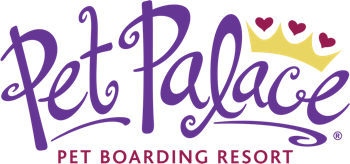Resources for New Dog and Puppy Owners
Posted by Lora Shaw on April 2, 2025

Core Dog Resource Takeaways
- Understanding pet regulations – You’ll want to familiarize yourself with local regulations concerning pet ownership, including vaccination requirements, zoning laws, travel policies, and waste disposal rules, to ensure compliance with local statutes and take part in responsible pet care.
- Selecting appropriate food and treats – Choose dog food and treats that align with your pet’s age, size, breed, and dietary needs. Look for products labeled “complete and balanced” by the Association of American Feed Control Officials (AAFCO) and be mindful of portion sizes so you can help your pet maintain a healthy weight.
- Establishing a feeding schedule – Implement a consistent feeding routine that fits your lifestyle while ensuring your dog receives the proper nutrients. Regular schedules aid in digestion and help prevent behavioral issues.
- Prioritizing early training – Begin training your puppy early to address and prevent behavioral issues such as excessive barking and chewing. Early training fosters a strong bond and promotes good habits, and it will also keep your pet from misbehaving in varied circumstances.
- Monitoring treat intake – While treats are effective for positive reinforcement, excessive consumption can lead to weight gain and health issues. Offer treats in moderation and consider healthier options like fruits and vegetables that are suitable for dogs.
Doing research before picking up your new dog or puppy not only ensures you’re properly prepared but also will make sure your pup lives the best life possible. Finding the right resources helps set you both up for success and will make the transition in your home a lot smoother.
Regulations for Pet Owners to Know
Some regulations that are good for pet owners to be aware of include those focused on:
- Vaccinations – Of course, there are recommended vaccinations that you’ll want to get to promote your dog’s health, including shots for rabies, Bordetella, parvo, and more. There are also certain vaccine requirements if you plan to board your dog or have them stay at day cares.
- Zoning – Depending on where you live, there may be a limit on the type or number of dogs allowed in residential areas. If you have a dog or plan on getting a puppy, be sure to do your research so that you abide by any local restrictions.
- Traveling – If you plan on traveling with your dog, you’ll want to look up the airline you plan on taking and review their pet policies. You’ll also want to understand rules for transporting pets so everything goes off without a hitch.
- Disposal of pet waste – This goes without saying, but you should always clean up after your pet, especially in public places where others are walking.
Food and Treat Tips
Choosing the right treats and food for your pet can be quite overwhelming due to the wide variety of options available. The types that you choose can vary based on goals, breed, age, and more. Some tips to consider when it comes to selecting food or treats include the following:
- Some of the best dog treats for sensitive stomachs include salmon, zucchinis, kale, sweet potatoes, brown rice, apples, oats, blueberries, and more.
- Qualities you should look for in treats include their purpose, ingredients, age appropriateness, size, and texture.
- Feeding schedules are important. Choose a schedule that fits your lifestyle while ensuring your dog receives the proper amount of nutrients.
- Large breeds have unique nutritional needs so having real meat treats can provide protein and help them maintain their muscle mass.
- Some popular training treats that you may want to check out include Zuke’s Mini Naturals, Steward Single Ingredient treats, Merrick Power Bites, Buddy Biscuits Training Bites and more.
- For smaller dogs, to ensure they get the safest treats, you’ll want to look for ones designed for their size. You can purchase soft or chewy treats, opt for smaller or thinner hard treats, or cut up storebought treats, meats, fruits, and vegetables.
- If you’re looking to cool down your dog this summer, create your own dog treats such as peanut butter and jelly frozen bites, frozen pupsicles, frozen banana bites and more.
- In terms of dog food, you’ll want to look for brands that have been deemed “complete and balanced” by the Association of American Feed Control Officials (AAFCO).
- While treats are a great way to positively reinforce behavior, they still need to be regulated and distributed with care. An excessive number of treats can make your dog overweight, so be sure to feed them treats in moderation.
Puppy Training Tips
Researching tips on puppy training is crucial to prepare you and prevent issues down the road. By implementing training early on, you can better understand your dog and build a great relationship with them. Some tips to keep in mind when training your puppy include:
- Some behavior issues that training can prevent or help with include excessive barking, chewing, separation anxiety, begging, jumping on people, and aggression.
- >Get your puppy used to grooming while they’re young. This means handling and inspecting them so that they’re on their best behavior at the groomers’ or vet’s office.
- Essential tools for training you’ll want to acquire include a sturdy leash and collar, a comfortable harness, high-quality treats, interactive toys, and a clicker.
- Consistency and short, frequent training sessions can help maintain your dog’s attention and facilitate learning.
- Early socialization is key for puppies! You don’t want them to grow into overly fearful adult dogs, which is why exposing your puppy to new experiences is a good thing.
- Make caring for your puppy easier by housetraining them between the ages of 12–14 weeks, doing things such as rewarding them during outside bathroom trips, adhering to a regular food schedule, and taking them out first thing in the morning and after meals.
- Crate training can be such a valuable tool for puppy owners, giving them a safe, comfortable space where they can rest and relax. Just make sure to make it a positive experience for them.
- Investing in dog training not only benefits your dog, but you as the owner as well. It will help you to understand them and can also act as a great form of exercise. The better behaved they are, the less stressed you will be and the more they can join in on going places with you.
- Exercising your dog prior to training helps enhance focus and strengthen your bond. However, be sure to avoid overexertion as it can lead to a less-effective training session.
Support Organizations to Follow
One of the best things you can do when getting a new dog or puppy is to talk to others who have been through the same experience. Being able to hear from experts such as vets, trainers, or other professionals can provide you with valuable insights before you get your pet or when you’re facing dilemmas. Some organizations that you’ll want to follow include:
- American Kennel Club (AKC) – The AKC is a great resource as it provides information about all kinds of dog breeds. Additionally, it has insights for new puppy owners, ranging from notes on selecting the right puppy to how to go about training them throughout the early stages in life.
- Fetch the Answer (FTA) – Offering advice on a wide range of topics, Fetch the Answer is a valuable resource for owners looking to make decisions about their pet. Whether you need expert advice, health and wellness tips, help with training, or just a better understanding of your breed, they have you covered.
- Family Paws – Family Paws is a great resource if your new puppy will be interacting with a family who has a child or newborn. They specialize in dog and baby dynamics and even offer a support line for those needing to talk urgently.
- American Society for the Prevention of Cruelty to Animals (ASPCA) – The ASPCA offers key insights on pet health and also supplies some behavioral resources that could come in handy.
- Humane World for Animals – This is a good site for anyone looking to adopt, but it also offers advice on caring for and training dogs. Whether you need help with simple commands or you want to better understand your puppy’s behavior, the Humane World can help address these challenges and give you the proper solutions.
Relevant Facebook Groups to Join
Social media is another solid resource to take advantage of when getting a new dog or puppy. Being able to interact with those who have experienced firsthand what getting a new dog is like will not only give you reassurance but also support.
New dogs can be a challenge, so having a group to turn to and get their thoughts will help make your experience as enjoyable as possible. Some Facebook groups you may want to join include:
- New Puppie & Dog Owners Support Group
- First Time and New Dog Owner’s Support Group
- Puppy Club
- Dog Training Advice and Support
Be Prepared for Life with Your Furry Friend
Welcoming a new dog or puppy into your life is such an exciting journey. While it’s filled with joy, it can also bring challenges and moments of stress. That’s where these tools and resources can be used to your advantage so you can truly prepare for what’s to come!

Categories: Dogs, Tips for Your Pets
Archives
Recent Articles
Categories
Monthly Archive
- August 2025
- July 2025
- June 2025
- May 2025
- April 2025
- March 2025
- February 2025
- January 2025
- December 2024
- November 2024
- October 2024
- September 2024
- August 2024
- July 2024
- June 2024
- May 2024
- April 2024
- March 2024
- February 2024
- January 2024
- December 2023
- November 2023
- October 2023
- August 2023
- July 2023
- June 2023
- May 2023
- April 2023
- March 2023
- February 2023
- January 2023
- December 2022
- November 2022
- October 2022
- August 2022
- July 2022
- June 2022
- April 2022
- March 2022
- February 2022
- November 2021
- October 2021
- November 2020
- September 2020
- July 2020
- March 2020
- January 2020
- November 2019
- September 2019
- July 2019
- March 2019
- January 2019
- December 2018
- November 2018
- October 2018
- August 2018
- July 2018
- June 2018
- May 2018
- April 2018
- March 2018
- February 2018
- January 2018
- December 2017
- November 2017
- October 2017
- September 2017
- August 2017
- July 2017
- June 2017
- May 2017
- April 2017
- March 2017
- February 2017
- January 2017
- December 2016
- November 2016
- September 2016
- August 2016
- July 2016
- June 2016
- May 2016
- April 2016
- March 2016
- February 2016
- December 2015
- November 2015
- October 2015
- September 2015
- August 2015
- July 2015
- May 2015
- March 2015
- February 2015
- January 2015
- December 2014
- November 2014
- September 2014
- August 2014
- July 2014
- June 2014
- May 2014
- March 2014
- February 2014
- January 2014
- December 2013
- November 2013
- October 2013
- September 2013
- August 2013
- June 2013
- May 2013
- March 2013
